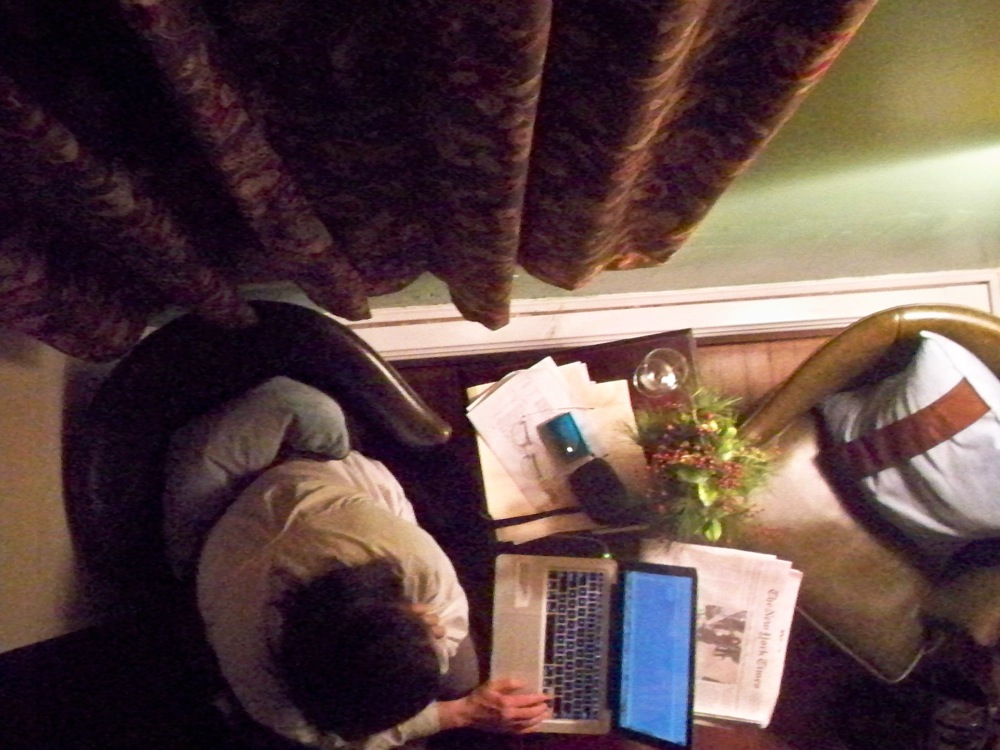Writing again.

New York Times writer David Leonhardt brought out the old whiny sigh on August 3 about how hard it is for women to get ahead in America. He opens with a terrible microcosm of the labor market or society: the Supreme Court. Golly gee, the last three women nominated to the high court were all single with no children. This should tell us something, he thinks.
“Men and women are not identical, of course,” he writes. “Many more women take time off from work. Many more women work part time at some point in their careers. Many more women can’t get to work early or stay late.”
Sure, men and women aren’t identical. I wouldn’t want to be the kind of man he’s taking for granted, the kind of man who doesn’t leave work early for his kids or his sick parents. The kind of man who doesn’t cook or if he does, thinks it’s a big gift to the world.
“And our economy exacts a terribly steep price for any time away from work — in both pay and promotions,” he warns. Is he wagging his finger? “People often cannot just pick up where they have left off. Entire career paths are closed off. The hit to earnings is permanent.” Here, the Times site inserts a hot link to Ann Crittenden’s book, The Price of Motherhood, which documents the pay disparities that are all too real in many lines of work.
Let’s repeat Leonhardt’s line that reveals the true strangeness of our world. He says, “People often cannot just pick up where they have left off.”
Actually, people can pick up where they left off. He means that many companies act as if women can’t. This has little to do with being gone for, what, three months? He means that if you’re pregnant and then gone for three months that you’re no longer part of the in crowd. You aren’t playing the game. You have more obligations. You have to start using your time wisely. Whoops, you become a more efficient worker who gives more in the time available.
Women can’t pick up where they left off after three months—or six months, which is also almost no time—not because they aren’t capable, but because few women or men expect them to. I agree that many of the bosses of America “exact a terribly steep price for any time away from work.” I agree that women expect not to get very far because of that. I believe most men still do almost nothing at home, whether children are involved or not. I also believe that columns like David Leonhardt’s basically say, “Give it up, ladies.” I also believe that the Supreme Court is not a good model of the American work force.
I have been working steadily since the summer I got out of college. I have taken two maternity leaves, one for three months, the other for four months. I took one four-month stretch off, unpaid, to hike the Appalachian Trail. And, guess what? It’s these things I took time off to do that made me the worker I am now. The AT was my master’s degree. The baby leaves were life itself, and, no, I didn’t forget how to go to an event and write up the story in my reporting job while I was on leave. I had bosses who believed I was capable even if I had a baby. (Thank you to the bosses at The Day of New London, particularly Tim Cotter.) My career has been a difficult one in many ways, and some of the difficulty came of people’s assumptions about women, while some of it was just difficult, because I wanted more than just a job.
I am so sick of reading about how hard it is for women. I ask myself if this statement reinforces something, acting almost as a primer for employers to keep that attitude going. I also think that some women step into this assumption themselves. I worry that young women will not have the courage to be ambitious in this old line of thinking. We want to be good mothers when the children are young, so we say things like, “Well, I ONLY WORK PART-TIME,” which I used to say. My husband, who ran home at 3 p.m. when he got off from teaching (rather than staying around to schmooze), never apologized to anyone for being a hands-on father while his wife was at work.
